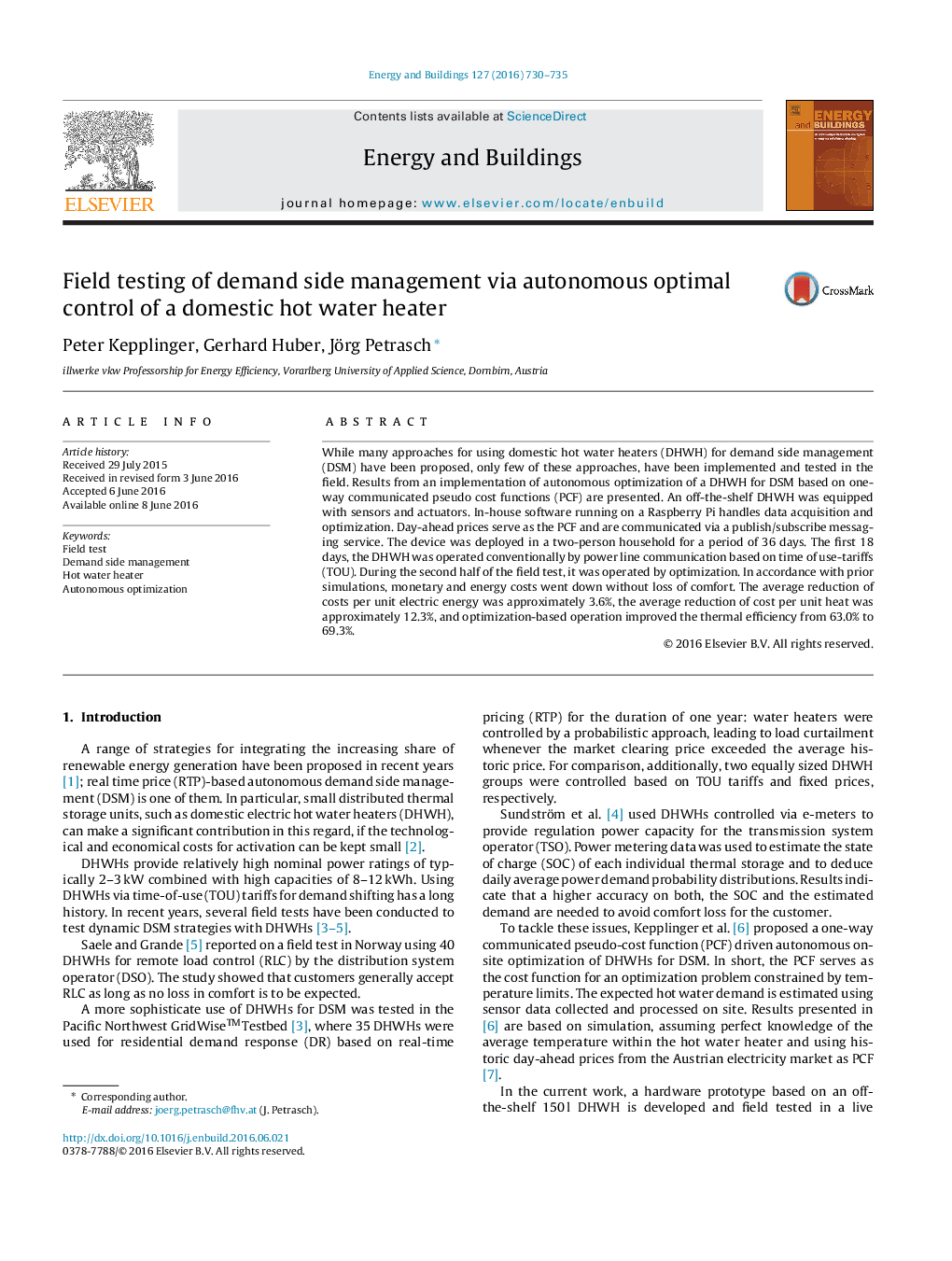| Article ID | Journal | Published Year | Pages | File Type |
|---|---|---|---|---|
| 262019 | Energy and Buildings | 2016 | 6 Pages |
•Real world field testing of autonomous DSM approach with domestic hot water heaters.•Implementation of data acquisition and on-site optimization routines on a micro computer.•Day-ahead price based optimization driven compared to time-of-use tariff driven operation.•Results show improvement of thermal efficiency by over 6% for optimized operation.
While many approaches for using domestic hot water heaters (DHWH) for demand side management (DSM) have been proposed, only few of these approaches, have been implemented and tested in the field. Results from an implementation of autonomous optimization of a DHWH for DSM based on one-way communicated pseudo cost functions (PCF) are presented. An off-the-shelf DHWH was equipped with sensors and actuators. In-house software running on a Raspberry Pi handles data acquisition and optimization. Day-ahead prices serve as the PCF and are communicated via a publish/subscribe messaging service. The device was deployed in a two-person household for a period of 36 days. The first 18 days, the DHWH was operated conventionally by power line communication based on time of use-tariffs (TOU). During the second half of the field test, it was operated by optimization. In accordance with prior simulations, monetary and energy costs went down without loss of comfort. The average reduction of costs per unit electric energy was approximately 3.6%, the average reduction of cost per unit heat was approximately 12.3%, and optimization-based operation improved the thermal efficiency from 63.0% to 69.3%.
